Search
Search Results
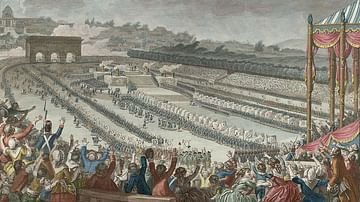
Definition
Festival of the Federation
The Festival of the Federation (Fête de la Fédération) was a celebration that occurred on the Champ de Mars outside Paris on 14 July 1790, the first anniversary of the Storming of the Bastille. With over 300,000 people in attendance, the...

Image
Festival of the Federation
Festival of the Federation (14 July 1790) on the Champ de Mars, from a perspective close to the king's pavilion, engraving by Isidore Stanislas Helman, after a painting by Charles Monnet, 1790.
Bibliothèque nationale de France.
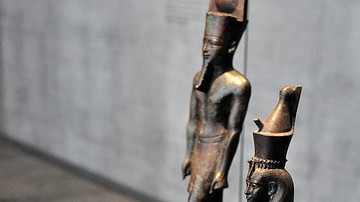
Article
Egyptian Gods - The Complete List
The gods and goddesses of Ancient Egypt were an integral part of the people's everyday lives for over 3,000 years. There were over 2,000 deities in the Egyptian pantheon, many whose names are well known - Isis, Osiris, Horus, Amun, Ra, Hathor...
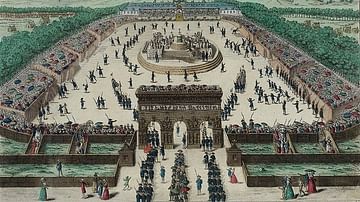
Image
Festival of the Federation, 14 July 1790
Overhead view of the Champ de Mars during the Fête de la Fédération (Festival of the Federation), 14 July 1790.
Musée de la Révolution française, Vizille.
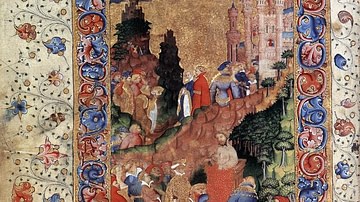
Article
Chaucer's The Book of the Duchess Full Text & Summary
The Book of the Duchess is the first major work of the English poet Geoffrey Chaucer (l. c. 1343-1400 CE), best known for his masterpiece The Canterbury Tales, composed in the last twelve years of his life and left unfinished at his death...
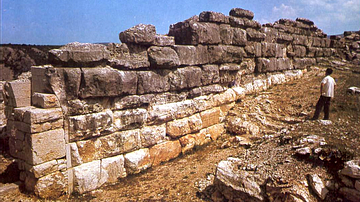
Image
Daorson Ruins, Ancient Illyria
The ruins of Daorson, ancient Illyria (modern Bosnia). The region was inhabited by the Daorsi tribe who flourished in the region c. 300-50 BCE. They fell under the control of Queen Teuta (r. 231-227 BCE) and were most likely involved in Illyrian...
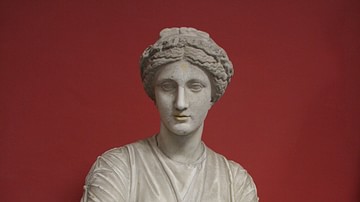
Article
Hesiod on the Birth of the Gods
The Greek poet Hesiod (c. 700 BCE) is most famous for his works Theogony and Works and Days. In this passage from Theogony, Hesiod relates the birth of the gods from cosmic Chaos and follows the lineage through the great Zeus, King of the...
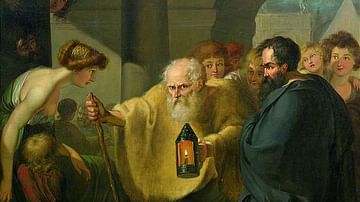
Article
The Life of Diogenes of Sinope in Diogenes Laertius
Diogenes of Sinope (c. 404-323 BCE) was a Greek Cynic philosopher best known for holding a lantern to the faces of the citizens of Athens claiming he was searching for an honest man. He was most likely a student of the philosopher Antisthenes...

Article
The Mesopotamian Pantheon
The gods of the Mesopotamian region were not uniform in name, power, provenance or status in the hierarchy. Mesopotamian culture varied from region to region and, because of this, Marduk should not be regarded as King of the Gods in the same...

Article
Enuma Elish - The Babylonian Epic of Creation - Full Text
The Enuma Elish (also known as The Seven Tablets of Creation) is the Babylonian creation myth whose title is derived from the opening lines of the piece, "When on High". The myth tells the story of the great god Marduk's victory over the...